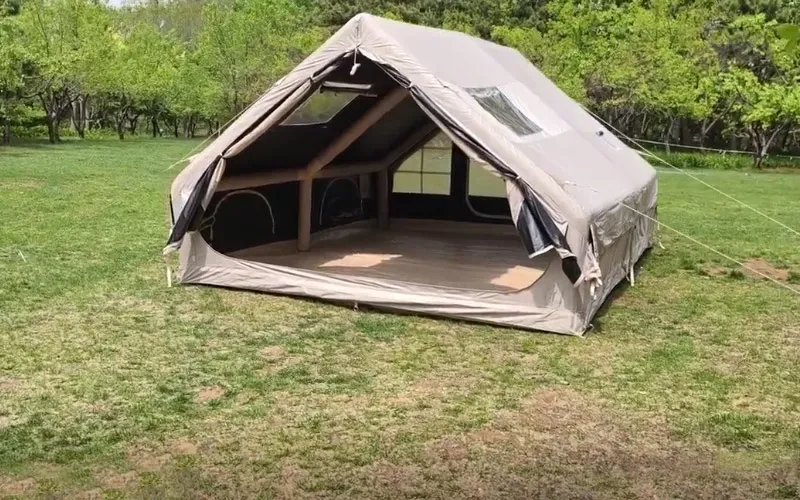OEM/ODM with MSR and Get a Quote Now
Unsure where to start? Contact us directly!
WhatsApp: +86 18737221795
Email: [email protected]



With the popularity of outdoor activities, tents have become an important tool for temporary living and shelter, and their types and performance are constantly improving. Inflatable tents and traditional tents are two common choices, each with advantages in structure, construction speed, stability, and other aspects.
1、 The advantages of inflatable tents
The core features of inflatable tents are convenience and speed. It adopts advanced inflation technology, which rapidly expands the tent into a three-dimensional structure through an inflation system. The setup and dismantling of this tent are very fast, requiring only a small amount of manpower and time to complete. In addition, the inflatable tent has a spacious interior and good insulation performance, which can provide users with a comfortable environment in a short period of time.
2、 The advantages of traditional tents
Traditional tents also have a wide range of applications in outdoor activities. Its core advantages are its simple structure, easy portability, and strong adaptability. Traditional tents can adapt to various complex terrains and environments, and their prices are relatively affordable. Although the speed of building and dismantling may be slightly slower than that of inflatable tents, their flexibility and adaptability make them the best choice in specific environments, such as hiking in mountains.
3、 Comparative analysis
When comparing inflatable tents with traditional tents, we can see the following differences:
1. Construction speed: Inflatable tents have significantly better construction speed than traditional tents due to their rapid expansion characteristics. For time sensitive outdoor activities, inflatable tents are more efficient and convenient.
2. Space and Comfort: The inflatable tent has a spacious interior with good insulation performance, providing users with a more comfortable environment. Traditional tents, on the other hand, place more emphasis on flexibility and adaptability.
3. Applicability: Traditional tents, due to their simple structure and flexibility, can adapt to various complex terrains and environments. Inflatable tents are more common in urban camping or flat ground camping.
4. Cost and maintenance: Inflatable tents have relatively high costs, but they are relatively easy to disassemble and store. Traditional tents have lower costs and relatively simple maintenance.
Overall, inflatable tents have their own advantages compared to traditional tents, and the choice of tent mainly depends on the specific needs and scenarios of outdoor activities. For users who pursue efficiency and comfort, inflatable tents are a good choice; For users who pursue flexibility and adaptability, traditional tents are more suitable.